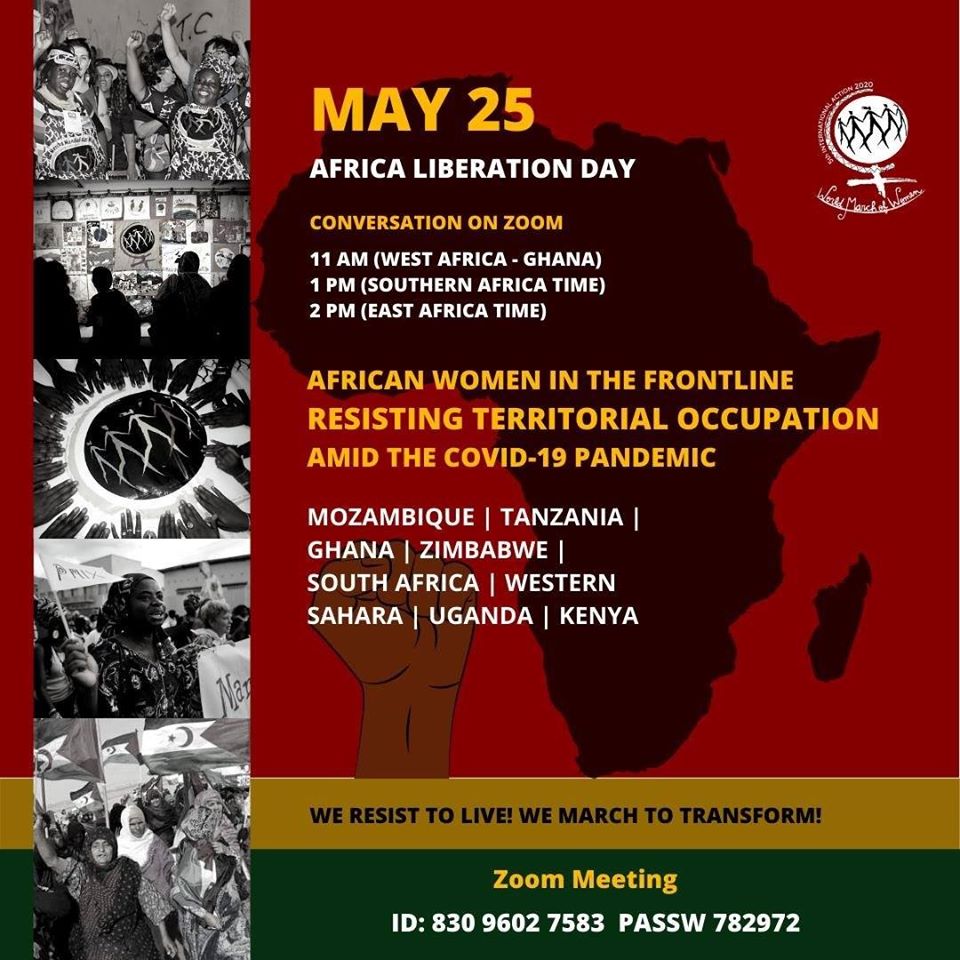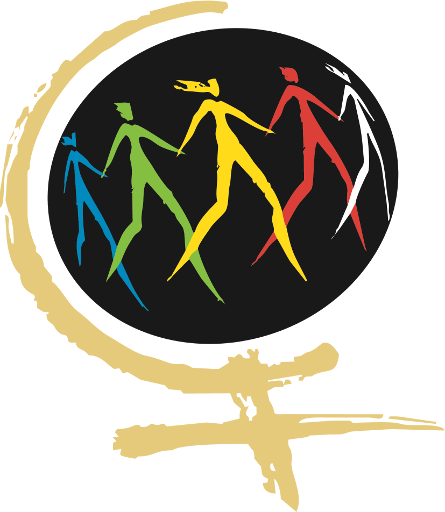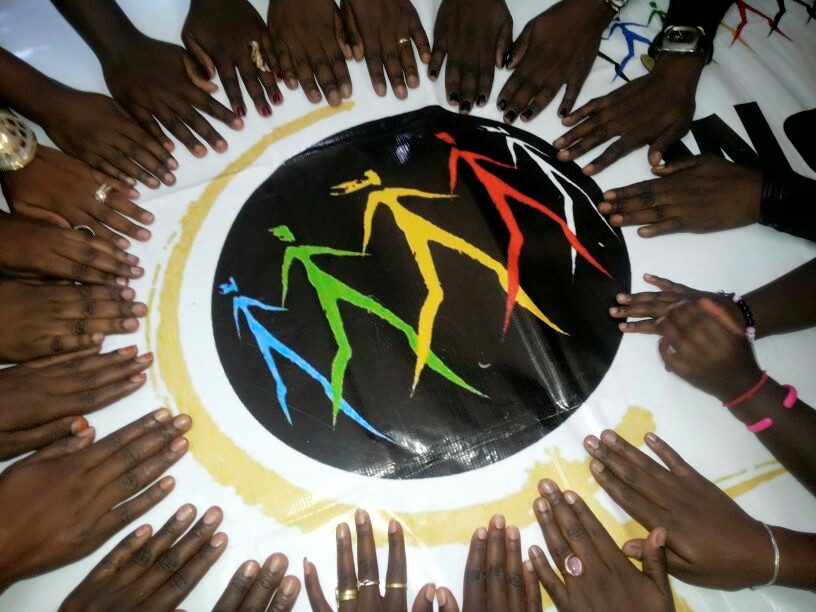
The World March of Women Africa held, on Africa Liberation Day, May 25th, the webinar African Women in the Frontline Resisting Territorial Occupation Amid the Covid-19 Pandemic. The activity was organized by women from Mozambique, Tanzania, Ghana, Zimbabwe, South Africa, Western Sahara, Uganda and Kenya. They discussed the challenges that women face in the pandemic and the strategies to overcome them. They also discussed our alternatives to the model that, even before the pandemic, generated crises and inequalities, and the opportunities we have to show these alternatives.
On the Africa Liberation Day, they greeted our sisters in Western Sahara and their struggle for liberation from the Moroccan occupation. Western Sahara is the last colony on the African continent and is struggling to recover its lands, usurped by the Kingdom of Morocco in an agreement with Spain.
Facing crisis
In different countries, the effect of heteropatriarchal, neoliberal, colonialist and imperialist capitalism on women’s lives is similar. As in other countries and regions, African women are also more affected by the health crisis. Women reported how governments in the region enacted isolation measures (in many countries, strict shutdowns) without any social protection measures, and in many places without access to clean water or resources to purchase hygiene products. They tell us about high unemployment with the closing of companies or the suspension of their operations. And about the impossibility of buying products and selling them in the markets, an economic activity for many people in countries where the economy is mostly informal.
There is hunger. The border blockade in countries like Zimbabwe and Mozambique, which depend on food imports from South Africa, has caused food shortages and price increases. Even in South Africa, prices have risen and many perishable goods have spoiled before being sold. They also tell us about problems like in Uganda, where women who violated quarantine rules to try to work and get food for their families have been detained. There is an increase in poverty due to job losses, and women have also been hardest hit by the layoffs.
Overburdened by housework and care, women suffer from stress and exhaustion, and face domestic and gender-based violence, which increased during the pandemic. The dismissals and closings of industries and mines and the return of workers to their countries of origin have increased violence, both in homes and in quarantine centers for returnees. In provinces such as Sofala and Manica (Mozambique), the new emergency situation caused by the pandemic has affected populations that are still recovering from the destruction of their infrastructure, including hospitals, due to climate change and cyclones in 2019.
Sharing strategies
Strategies to face the new crisis are based on solidarity and organization among women. The women spoke of sharing information and food, seeking alternative sources of income, forming support groups to free women prisoners and providing shelter for women who were traveling and were prevented from returning home by lock down measures. They shared initiatives to maintain the necessary listening for so many women who are experiencing such great problems. The militants also discussed the importance of information exchange between women organized in countries where radio and television communication is dominated by governments. In Zimbabwe, the Women’s Coalition launched a daily report with information on issues such as hunger, closed markets, unemployment, what to do with child care, how to protect oneself against the coronavirus. The information helped women organize the manufacture of masks and hygiene products to protect themselves and to sell.
Another strategy is to require governments to account for resources from donations and loans received to combat the pandemic. Women spoke of the need to collect information from governments, synthesize it and publish it, even at the risk of criminalization. Women participate in pandemic response committees in the public and private sectors, monitoring this issue.
Raising our voices and demands
“We cannot go back to normal. We must demand public health, education, all the basic services to which we are entitled, which are public. We need to stop the privatization of these basic services. We need to democratize and socialize our food system. We need Agroecology, we need to produce and consume locally and, at the same time, demand global climate justice. We cannot depend on agribusiness to feed ourselves. This is the time for the world to recognize the role of local food production and also the role of women in agriculture, since 60% of food production is carried out by women”, summarized Theodora Pius, from Tanzania.
“We need to raise our voices so that the work of women does not continue in silence. The coronavirus has shown us that care work is the most fundamental, the worst paid and is performed mainly by women. And what we demand is recognition and redistribution of this work, of reproductive work. The time has come to demand recognition of the work of women, who produce food and care for their communities”, said Wilhelmina Trout, from South Africa.
We resist to live, we march to transform!
Liaison Newsletter – July 2020

